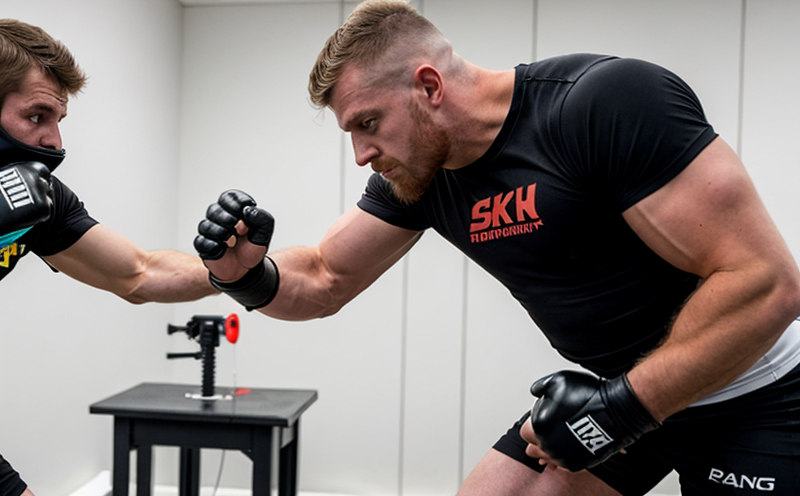BS EN 374-5 Protective Gloves Against Microorganisms Testing
The BS EN 374-5 standard sets out the requirements and test methods for protective gloves used to protect against microorganisms. This standard is crucial in ensuring that personal protective equipment (PPE) meets the necessary safety and hygiene standards required by regulatory authorities.
Protective gloves are an essential component of occupational safety, particularly in sectors such as healthcare, laboratory work, food processing, and pharmaceuticals. The ability to protect against microorganisms is critical when handling potentially harmful substances or pathogens. BS EN 374-5 specifically targets the protection provided by gloves against bacteria, fungi, and viruses.
The standard covers four classes of glove protection: Class 1 (protective), Class 2 (sterile), Class 3 (sterile & protective), and Class 4 (special). The test method described in BS EN 374-5 is designed to evaluate the resistance of gloves against microorganisms through a series of challenging tests. These tests include inoculating gloves with various strains of bacteria, fungi, and viruses and then assessing their ability to retain these microorganisms.
The testing process involves several critical steps: preparation of the glove samples, inoculation with specific microorganisms, incubation periods, observation for microbial leakage or transfer, and documentation. The standard specifies precise conditions under which tests must be conducted, including temperature, humidity, and time durations. Compliance is essential to ensure that gloves meet the required safety standards and can be trusted in critical applications.
The testing process is both rigorous and complex. It requires specialized equipment such as inoculation devices, incubators, and observation chambers. The choice of microorganisms used for testing is also important; they must be selected based on their relevance to potential occupational hazards. For instance, Staphylococcus aureus and Escherichia coli are commonly used bacteria in these tests.
The results of the BS EN 374-5 test are critical for quality managers and compliance officers who need to ensure that PPE meets regulatory requirements. The test results provide a quantitative measure of how effective gloves are at preventing the transmission of microorganisms, which is essential for maintaining a safe work environment.
In addition to the BS EN 374-5 standard, there are other relevant standards such as ISO 10143 and ASTM F1291 that cover different aspects of glove testing. However, in many jurisdictions, compliance with BS EN 374-5 is mandatory for certain applications.
The importance of this test cannot be overstated. In sectors where occupational safety is paramount, such as healthcare and laboratory research, the reliability of protective gloves can mean the difference between life and death. Ensuring that gloves meet the stringent requirements set forth in BS EN 374-5 not only protects workers but also complies with legal and regulatory requirements.
For R&D engineers involved in developing new types of gloves, understanding and adhering to the standards is crucial for successful product development. The testing process provides a roadmap for creating effective PPE that can withstand real-world conditions.
The procurement teams responsible for sourcing protective equipment need to ensure they are purchasing gloves that have been tested according to BS EN 374-5 and meet the necessary standards. This ensures that the equipment is reliable and safe for use in critical applications.
Applied Standards
- BS EN 374-5: Provides detailed requirements and test methods for protective gloves against microorganisms.
- ISO 10143: Covers the preparation of culture media used in microbiological testing, which is a critical step before glove testing.
- ASTM F1291: Focuses on the performance and classification of gloves used in medical applications.
The combination of these standards ensures that protective gloves are rigorously tested and meet stringent safety requirements. Compliance with these standards is essential for manufacturers to produce reliable, safe, and effective PPE.
Quality and Reliability Assurance
- Consistent Glove Preparation: Gloves are prepared in a standardized manner before testing to ensure uniformity across samples.
- Inoculation Procedures: Careful inoculation with specific microorganisms is crucial for accurate test results. Inoculation must be done under controlled conditions to prevent contamination.
- Incubation Conditions: The incubation period and temperature are critical factors in determining the effectiveness of gloves against microorganisms. Variations can lead to inaccurate test results.
- Observation and Documentation: Rigorous observation techniques are employed during the incubation period, followed by detailed documentation of any microbial transfer or leakage.
The quality and reliability of these tests are ensured through strict adherence to standard procedures. Any deviation from these protocols can lead to unreliable test results, which is why meticulous attention to detail is paramount in this process.
Use Cases and Application Examples
In the healthcare sector, protective gloves are used extensively by medical professionals. Compliance with BS EN 374-5 ensures that these gloves can effectively protect against microorganisms in environments where infections are prevalent.
In laboratory settings, protective gloves are essential for handling hazardous materials and samples. The rigorous testing outlined in BS EN 374-5 helps ensure that the gloves used meet the necessary safety standards, reducing the risk of contamination or exposure to harmful pathogens.
Food processing plants also rely on protective gloves to protect workers from potentially harmful microorganisms. Ensuring compliance with this standard is crucial for maintaining food safety and preventing contamination in the production process.
In pharmaceutical manufacturing, glove testing according to BS EN 374-5 is essential for ensuring that the final product is safe and uncontaminated. The reliability of these gloves directly impacts the quality and safety of the medicines produced.
For R&D engineers, understanding and implementing the rigorous tests outlined in this standard helps in designing more effective and reliable PPE. This ensures that new products meet or exceed current standards, enhancing overall occupational safety.
The procurement process for protective equipment also benefits from compliance with BS EN 374-5. By sourcing gloves that have been rigorously tested, organizations can ensure they are acquiring high-quality, reliable protection against microorganisms.





